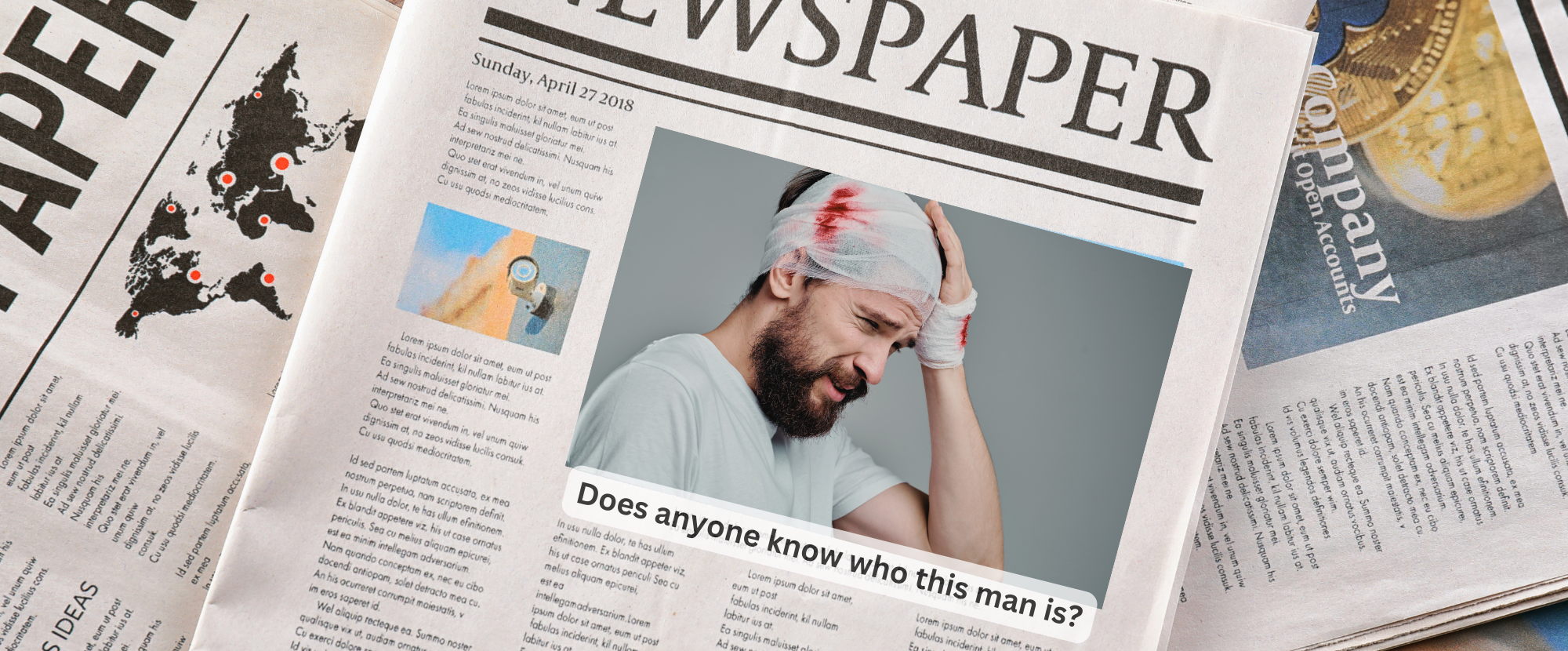Modals 1 – Lead In
A. Context Speaking
- Could amnesia affect memory completely? Explain.
- Can people regain lost memories? How?
- Might stress cause memory problems? Explain.
- Can someone forget important life events? How?
- Could technology help improve memory? How?
- Can certain foods enhance memory ability? How?
- Could sleep influence memory retention? Explain.
A. Context Listening
You are going to hear two doctors discussing a patient. Before you listen, look at the newspaper headline and guess how it relates to the patient.

Listen and check if you were right.
Listen again and say whether the sentences below are true or false. Correct the sentences that are false.
- The patient could remember all his personal details.
- The patient definitely came from Yorkshire.
- The patient could speak French and Italian.
- Joe thinks that the patient might have been running away from something.
- Joe thinks that the patient was definitely unmarried.
- The patient has been unable to make contact with anyone he knows.
- Deborah thinks that the patient can’t have hit his head.
- Deborah thinks that the patient will never recover his memory.
Underline these words in the questions and answers in Exercise 3.
| could | couldn’t | might | be able to | must | can’t | will |
- Which words refer to ability?
- Which words refer to certainty or impossibility?
- Which words refer to possibility?
Show Answer Key and Audio Transcript Answer Key2 The newspaper headline refers to a patient with amnesia that the doctors are discussing. 3 1 F He couldn’t remember his personal details.; 2 F He could have come from Yorkshire. 3; T 4; T; 5 F Joe thinks he could have been married.; 6 F He’s been able to find his parents. 7 F She thinks that he must have hit his head. 8 F She thinks he could make a total recovery. 4 Ability: could; couldn’t; be able to Certainty and impossibility: will; must; can’t Possibility: could; might TranscriptDeborah: Hi Joe. Joe: Hello Deborah. Listen, have you had much experience dealing with amnesia? Deborah: Actually, yes I have. It was a patient I had last year when I was working in a hospital in Canada. Joe: Can you remember much about it? Deborah: Well, a man was brought to us with some facial and head injuries, and he couldn’t remember who he was, where he lived, or how he came to be in Canada. Joe: Were there any clues at all? Deborah: Well, he spoke with a strong British accent, so the police realized he couldn’t be Canadian. They took him to a language expert who said that he could have come from Yorkshire, in England. The police also managed to find out that he could speak French and Italian. But he couldn’t remember his name, address, age, or anything. Can you imagine what it must be like to have your whole life lost like that? Joe: Yes, it must be awful. But do you think he was genuine? He might have been trying to run away from his past or something. People can do funny things when they’ve experienced something terrible. Deborah: Well, if he was, it certainly wasn’t the best way to go about it, because his picture was in all the papers and on the news. He wouldn’t have been able to fool everybody for so long if it wasn’t true, I’m sure. At some point, he was bound to have said something to give it away. No, I think he really had genuinely lost his memory and couldn’t remember anything. |